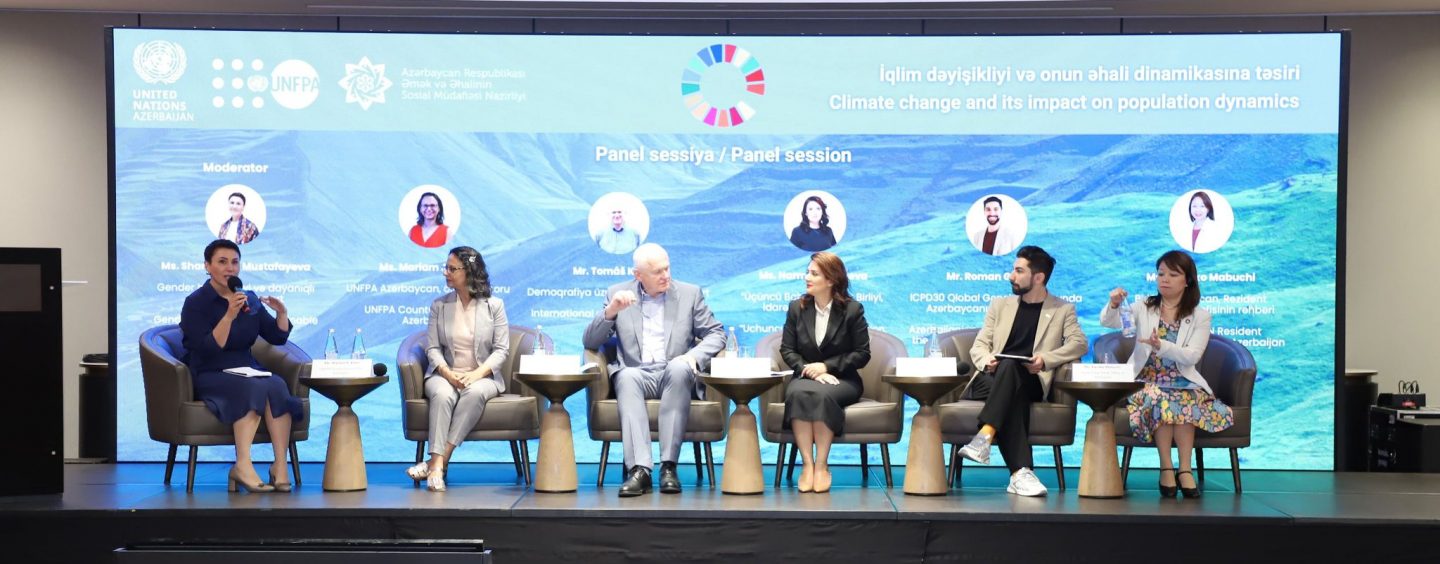
Climate Change and Its Impact on Population Dynamics Discussed as Part of the “29 Climate Conversations: The Road to COP29” Series
The “29 Climate Conversations: The Road to COP29” series, initiated by the United Nations in Azerbaijan, hosted its tenth event focusing on “Climate change and its impact on population dynamics”.
The event, organized jointly with the UNFPA country office in Azerbaijan and the Ministry of Labor and Social Protection of the Population, brought together government officials, representatives of UN agencies, international and local experts, as well as civil society members.
The event’s opening speeches were delivered by Vladanka Andreyeva, Resident Coordinator of the UN in Azerbaijan, Anar Karimov, Deputy Minister of Labor and Social Protection of the Population and Mariam A. Khan, UNFPA Country Director for Azerbaijan.
The event continued with the panel discussion featuring UN representatives, experts and local civil society members who exchanged views on the impact of global climate change on demographic processes and population dynamics.
Noting the importance of the event, Vladanka Andreyeva, Resident Coordinator of the UN in Azerbaijan, said, “The vision for COP29 is to enhance ambition and enable action. By addressing the demographic implications of climate change, we pave the way for comprehensive, inclusive policies that will drive sustainable development and resilience”.
Deputy Minister of Labor and Social Protection of the Population Anar Karimov highlighted the need to integrate approaches related to demographic trends into strategic planning in determining the course of sustainable development. Identifying how climate change and population trends are linked helps to better manage the effects of climate change on population, he added.
Speaking about the impact of climate change on demographic processes, Mariam A. Khan, UNFPA Country Director for Azerbaijan, emphasized: “Climate change impacts every aspect of population fertility, migration, and mortality. As a public health issue, it impacts overall well-being and aspirations for the future all the way to the ability to safely conceive and bear children. Climate-induced poverty and food insecurity lead to increased migration and have knock on effects such as higher risks of domestic violence, increase in female school dropouts and child marriages.”
It is worth noting that the “29 Climate Conversations: Road to COP29” series aim to foster collaborative action and dialogue across different sectors to combat the global climate crisis.





